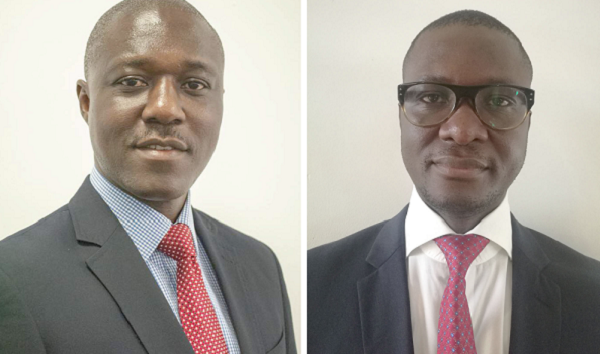
‘Mobile money is the future of payment systems’
Convenience is one of the most important drivers or determinants of customers’ choices and business decisions. Convenience is often an end product of innovation and business process improvement so one of the most important areas of improvement that significantly open up the business space is payment systems.
The more people are able to easily and quickly pay across different geographical demographic and other institutional barriers, the more businesses can get done.
The discussion on the payment systems was brought home on the Springboard, Your Virtual University, a radio programme on Joy FM used last Sunday’s edition to answer.
The topic was, “ The Past, The Present and the Future of Payments Systems”
The show, which is hosted by Rev. Albert Ocran, had the General Manager, Mobile Financial Services at MTN, Mr Eli Hini and the Head of Customer Distribution at Ecobank Ghana, Mr Elhanan Owureku Asare, who helped listeners to understand what the future holds for payment systems.
Mr Hini said, “in terms of payment systems, a lot of work had gone in especially from the mobile perspective so today on the go; people are able to do lots of things with their phones.”
He said people now had applications that allowed them to connect to a payment solution provider and a merchant or other integrated payment systems right on their phones.
“There are many options that are available and in Ghana we are just scratching the surface but gradually, we are moving into Near Field Communication (NFC) technology that allows one unit to communicate with the other by coming as close as possible and we are now beginning to build it into our ecosystem in Ghana,” he stated.
Volume of mobile transactions
Touching on how people have embraced mobile payments as the new form of payment system in the country, he said the level of acceptance had been incredible as available statistics from the Bank of Ghana indicated the volume of transaction for mobile money increased from 222 million in the first half of 2016 to 423 million in the first half of this year.
He said these payments cut across the entire country as the system reached out to anyone at any part of the country.
“It is more prevalent in the cities where there are lots of activities but those in the rural areas have not been left out,” he noted.
Do’s and don’ts
Sharing some do’s and don’ts, Mr Hini advised individuals not to give out their Personal Identification Number (PIN) at any point in time.
“If you notice that your PIN has been compromised, you should immediately change it before somebody gets to know,” he said.
He also advised users of mobile money services to frequently change their PIN’s in order to reduce the risk of their PIN’s being compromised.
Customer convenience
Mr Owureku Asare, for his part, said, “payment systems has had an interesting journey globally and if you look back, right from barter trade, through coins to cards and now it has gotten to mobile payments.”
He said throughout the evolution of payment systems, there was one thing that had always stood out and that was customer convenience which had been the major driver of the evolution.
“It gets to a point where on the consumer side is looking at how he or she can pay easily and the merchant or business side too is looking at how I can accept easily.
Mobile payments
He said mobile payments was now the new movement, adding, “when mobile money was first introduced in the country, it was as If it wouldn’t work out but today we look back and mobile payments is dictating payments across the country.”
“Even for the big financial institutions, they have realised that it is important for them to get into that space to ensure that they follow the lifestyle of their customers,” he stated.
Value of transaction
A report by KPMG in 2016 on payments development in Africa indicated that despite the efforts that Ghana is putting in to digitise payments, it is still remained a largely cash and cheque economy.
Statistics from the Bank of Ghana showed an increase in the use of cheque across the country from approximately GH₵38.5 billion in 2010 to GH₵131 billion in 2015, representing a 240 per cent increase over five years.
Mr Owureku Asare, however, said this was no indication that more people were still using cash and cheque.
“If you put the report into perspective, there are is a difference between the values that are being transacted and the volumes. A lot of reports will tell you that the volumes are increasing at a higher rate but when it gets to the value, obviously the amounts that are being transacted using cheques are in higher amounts,” he explained.
“We have also realised that the size of economy is going up so in terms of value of transactions, these are expected to go up,” he indicated.